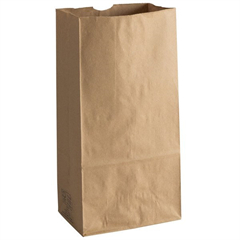Disposing of plastic bags responsibly is essential to reduce the environmental impact of plastic pollution. Here are some guidelines for responsible plastic bag disposal:
- Recycle: Check with your local recycling program to see if they accept plastic bags. Many recycling facilities have drop-off points for plastic bags and film plastics. Some grocery stores also have collection bins for recycling plastic bags. Before recycling, make sure to remove any receipts or other non-plastic materials.
- Reuse: If your plastic bags are still in good condition, consider reusing them. You can use them for grocery shopping, storing items, or even as trash bags in small bins.
- Return to Retailers: Some retail stores and supermarkets have take-back programs for plastic bags. You can return your used plastic bags to these stores for recycling or reuse.
- Reduce Consumption: The most effective way to manage plastic bag disposal is to reduce your consumption of single-use plastic bags. Invest in reusable bags made of cloth, jute, or other eco-friendly materials. Keep reusable bags in your car or carry a foldable one in your purse or backpack so that you’re always prepared.
- Dispose of Properly: If you have no other option but to dispose of plastic bags in the trash, make sure to secure them in a larger bag or container. This prevents them from being carried away by the wind and ending up as litter. Knotting the bags or tying them in a tight knot can help reduce the chances of them escaping.
- Participate in Cleanup Efforts: Consider joining or supporting local cleanup efforts in your community to help remove plastic bags and other litter from public spaces, parks, beaches, and waterways.
- Educate and Encourage Others: Share information about responsible plastic bag disposal with your friends, family, and community. Encourage others to reduce their use of single-use plastics and adopt eco-friendly alternatives.
- Advocate for Policies: Support or advocate for policies and regulations that promote responsible plastic bag disposal and reduce single-use plastic consumption. This may include advocating for plastic bag bans, fees, or extended producer responsibility programs.
- Explore Alternative Packaging: Encourage businesses and retailers to explore alternative packaging options that are more environmentally friendly and less reliant on single-use plastic bags.
Remember that plastic bags can take hundreds of years to break down in the environment, and they pose significant threats to wildlife and ecosystems when not disposed of properly. Responsible disposal and a shift toward more sustainable choices are crucial steps in addressing the plastic pollution problem.




















